- Public Inspection: CMS: Medicare Program: Implementation of Prior Authorization for Select Services for the Wasteful and Inappropriate Services Reduction Model
- CMS: Secretarial Comments on the CBE's (Battelle Memorial Institute) 2024 Activities: Report to Congress and the Secretary of the Department of Health and Human Services
- HHS: Patient Protection and Affordable Care Act: Marketplace Integrity and Affordability
- HRSA Announces Action to Lower Out-of-Pocket Costs for Life-Saving Medications at Health Centers Nationwide
- Public Inspection: HHS: Patient Protection and Affordable Care Act: Marketplace Integrity and Affordability
- Increased Risk of Cyber Threats Against Healthcare and Public Health Sector
- Eight Hospitals Selected for First Cohort of Rural Hospital Stabilization Program
- Announcing the 2030 Census Disclosure Avoidance Research Program
- CMS: Medicare Program; Hospital Inpatient Prospective Payment Systems for Acute Care Hospitals and the Long-Term Care Hospital Prospective Payment System and Policy Changes and Fiscal Year 2026 Rates; Requirements for Quality Programs; and Other Policy Changes; Correction
- CMS: Medicare Program; Hospital Inpatient Prospective Payment Systems for Acute Care Hospitals and the Long-Term Care Hospital Prospective Payment System and Policy Changes and Fiscal Year 2026 Rates; Requirements for Quality Programs; and Other Policy Changes; Correction
- CMS: Medicare and Medicaid Programs; Contract Year 2026 Policy and Technical Changes to the Medicare Advantage Program, Medicare Prescription Drug Benefit Program, Medicare Cost Plan Program, and Programs of All-Inclusive Care for the Elderly; Correction
- CMS: Medicare and Medicaid Programs; Contract Year 2026 Policy and Technical Changes to the Medicare Advantage Program, Medicare Prescription Drug Benefit Program, Medicare Cost Plan Program, and Programs of All-Inclusive Care for the Elderly; Correction
- CMS: Medicare Program; Prospective Payment System and Consolidated Billing for Skilled Nursing Facilities; Updates to the Quality Reporting Program for Federal Fiscal Year 2026
- CMS: Medicare Program; FY 2026 Hospice Wage Index and Payment Rate Update and Hospice Quality Reporting Program Requirements
- Public Inspection: CMS: Medicare Program: Fiscal Year 2026 Hospice Wage Index and Payment Rate Update and Hospice Quality Reporting Program Requirements
Apply for Medicare ACO Primary Care Flex Model Request for Applications
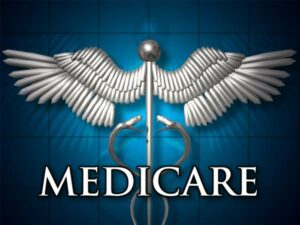 Deadline August 1. The Centers for Medicare & Medicaid Services (CMS) is now accepting applications for the ACO Primary Care Flex Model (ACO PC Flex Model). This voluntary model focuses on improving primary care delivery in the Medicare Shared Savings Program. Accountable Care Organizations (ACO)s participating in the ACO PC Flex model will receive monthly prospective primary care payments, replacing traditional fee-for-service reimbursement, for primary care services for all participating primary care providers, Federally Qualified Health Centers, and Rural Health Clinics. They will also receive an upfront Advanced Shared Savings Payment of $250,000. Organizations interested in participating must first apply to the Shared Savings Program by June 17 then submit a supplemental ACO PC Flex application questionnaire. CMS will host a webinar TODAY, June 6 at 2:00 pm Eastern to provide an overview of the ACO PC Flex Model’s application process.
Deadline August 1. The Centers for Medicare & Medicaid Services (CMS) is now accepting applications for the ACO Primary Care Flex Model (ACO PC Flex Model). This voluntary model focuses on improving primary care delivery in the Medicare Shared Savings Program. Accountable Care Organizations (ACO)s participating in the ACO PC Flex model will receive monthly prospective primary care payments, replacing traditional fee-for-service reimbursement, for primary care services for all participating primary care providers, Federally Qualified Health Centers, and Rural Health Clinics. They will also receive an upfront Advanced Shared Savings Payment of $250,000. Organizations interested in participating must first apply to the Shared Savings Program by June 17 then submit a supplemental ACO PC Flex application questionnaire. CMS will host a webinar TODAY, June 6 at 2:00 pm Eastern to provide an overview of the ACO PC Flex Model’s application process.
New Hypertension in Pregnancy Change Package Released
 Visit the Million Hearts website to download their Hypertension in Pregnancy Change Package. This quality improvement guide is full of tools and resources gathered from and tailored for clinical teams caring for pregnant and postpartum women in outpatient settings. Share it with your colleagues and networks. Select at least one change idea to implement and collaborate with others to expand the reach of this important work.
Visit the Million Hearts website to download their Hypertension in Pregnancy Change Package. This quality improvement guide is full of tools and resources gathered from and tailored for clinical teams caring for pregnant and postpartum women in outpatient settings. Share it with your colleagues and networks. Select at least one change idea to implement and collaborate with others to expand the reach of this important work.
Preventing and Addressing Sexual Violence Against People with Intellectual and Developmental Disabilities

HHS’ Administration for Community Living (ACL), the Office of the Assistant Secretary for Health, and the Administration for Children and Families (ACF) issued an informational memo about sexual violence against persons with intellectual and developmental disabilities. The letter, available on ACL’s website, raises awareness of the disparities that can put people with these disabilities at greater risk for sexual assault. It provides guidance and resources that help advocates and others recognize sexual violence and improve services for survivors.
Federally Qualified Health Center Telehealth Policies Fact Sheet
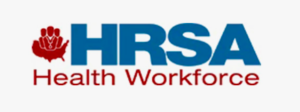
HRSA’s National Policy Telehealth Resource Center released a fact sheet to help Federally Qualified Health Centers (FQHCs) navigate Medicaid telehealth reimbursement. Find updated information and policies for Spring 2024. Read more.
Now Open: Substance Use Disorder Treatment and Recovery Loan Repayment Program
![]()
Are you passionate about helping those with substance use disorders? If you are a behavioral health clinician or support worker, clinical support staff, or are trained in substance use disorders, you can apply to the Substance Use Disorder Treatment and Recovery Loan Repayment Program (STAR LRP) and receive up to $250,000 in loan repayment. In exchange, you must work full-time for six years in a STAR LRP-approved facility. Make sure your health center is an approved STAR LRP site. The application is open now through June 27 at 7:30 pm ET.
Why Are Retail Health Clinic Experiments Struggling?
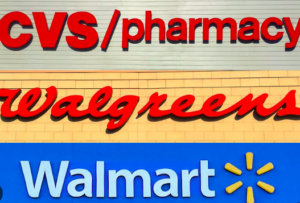 CVS, Walmart, and Walgreens are all scaling back or shuttering retail health clinics. Walgreens’ VillageMD recorded a $6 billion loss, an example of just how difficult it has become to generate profits from a healthcare model that retailers over the past decade bet would be a big win. Read more.
CVS, Walmart, and Walgreens are all scaling back or shuttering retail health clinics. Walgreens’ VillageMD recorded a $6 billion loss, an example of just how difficult it has become to generate profits from a healthcare model that retailers over the past decade bet would be a big win. Read more.
CMS Emergency Prepares Final Rule and Emergency Operations Plan, Creating a Document that Works
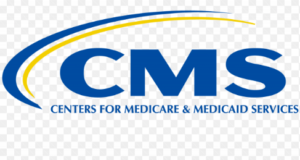 PACHC is facilitating this two-part webinar series with guest speaker Alexander Lipovtsev from Feldesman Leifer (formerly Feldesman Tucker Leifer Fidell). The first session is on June 5 from 1:00 – 2:00 pm. Alex will review the CMS EP Final Rule, discuss all its current requirements for FQHCs, how they may connect with the Joint Commission accreditation requirements, as well as provide some practical tips to ensure ongoing compliance. The second session will take place on July 2 from 1:00 – 2:00 pm and will explore best practices for developing an emergency operations plan (EOP) document for your organization, which is a required element by CMS. Registration cost is $50 for both webinars and you will receive the recording after the sessions. Register here.
PACHC is facilitating this two-part webinar series with guest speaker Alexander Lipovtsev from Feldesman Leifer (formerly Feldesman Tucker Leifer Fidell). The first session is on June 5 from 1:00 – 2:00 pm. Alex will review the CMS EP Final Rule, discuss all its current requirements for FQHCs, how they may connect with the Joint Commission accreditation requirements, as well as provide some practical tips to ensure ongoing compliance. The second session will take place on July 2 from 1:00 – 2:00 pm and will explore best practices for developing an emergency operations plan (EOP) document for your organization, which is a required element by CMS. Registration cost is $50 for both webinars and you will receive the recording after the sessions. Register here.
Pennsylvania Establishes Guidelines for Signatures for Telehealth and Audio-Only Services

In a recent conversation with the Office of Mental Health and Substance Abuse Services (OMHSAS) it was stated that audio-only services for telehealth should only be used when the individual does not have access to technology such as a smart phone, tablet, or computer that would allow real time audio-visual communication. Additional requirements for audio-only services include the following: payers are allowed to require a signature after each encounter, providers are still required to fill out service verification (encounter forms), and providers can send a form in the mail to patients with a pre-paid return envelope or utilize a HIPAA compliant system that captures an electronic signature in a manner that is auditable. If you have questions about obtaining a signature from your patients, please contact your payer.
Pennie Releases Data on Medicaid Unwinding Conversion Rate
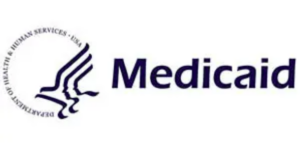 From April 2023 to Feb. 2024, Pennie engaged 412,070 Medicaid unwinding applicants through transfers from Medicaid and direct enrollments. Of the applicants, 61,567 enrolled in a plan for an average total conversion rate of 15% as of April 30. Philadelphia, Allegheny, Delaware, Berks, and Lehigh counties saw the largest number of unwind applicants. Unwinding consumers tend to pay less for coverage than other consumers due to the additional tax credits and cost-sharing reductions based on household size and income: 23% of enrollees paid less than $1 and 55% of enrollees paid $50 or less for a plan. The majority of the unwinding population, totaling 81% of enrollees, fell below 250% of the Federal Poverty Level and chose Gold or Silver plans. The data shows unwind consumers tend to be younger than the average consumer, more likely to be female, and more likely to be non-Hispanic/Latino. To view additional data, go to the May Pennie Board Meeting Deck.
From April 2023 to Feb. 2024, Pennie engaged 412,070 Medicaid unwinding applicants through transfers from Medicaid and direct enrollments. Of the applicants, 61,567 enrolled in a plan for an average total conversion rate of 15% as of April 30. Philadelphia, Allegheny, Delaware, Berks, and Lehigh counties saw the largest number of unwind applicants. Unwinding consumers tend to pay less for coverage than other consumers due to the additional tax credits and cost-sharing reductions based on household size and income: 23% of enrollees paid less than $1 and 55% of enrollees paid $50 or less for a plan. The majority of the unwinding population, totaling 81% of enrollees, fell below 250% of the Federal Poverty Level and chose Gold or Silver plans. The data shows unwind consumers tend to be younger than the average consumer, more likely to be female, and more likely to be non-Hispanic/Latino. To view additional data, go to the May Pennie Board Meeting Deck.
U.S. House Subcommittee on Oversight and Investigations to Hold “Oversight of 340B Drug Pricing Program” Hearing
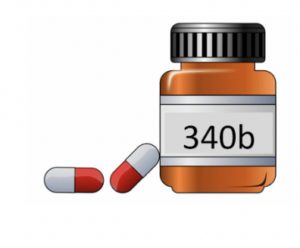
The Oversight and Investigations Subcommittee of the House Energy and Commerce Committee has scheduled a hearing on “Oversight of the 340B Drug Pricing Program” for Tuesday, June 4 at 10:30 am. The list of witnesses has yet to be announced. The hearing will be open to the public and press and will be live streamed online. Visit the committee website to learn more.
